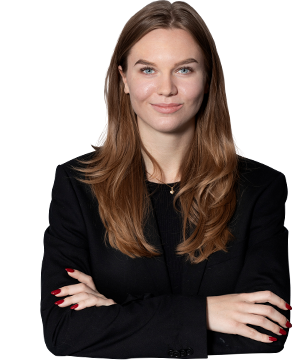Collisions with foreign objects is considered an extraordinary circumstance.
In a recent ruling, The European Court of Justice (CJEU) declared that damage to an aircraft tyre caused by a foreign object, in this case screws, falls within the notion of ‘extraordinary circumstances. Therefore, air carriers are not obliged to pay compensation to passengers in these situations, according to art 7 in the 261/204.
Passengers are entitled to compensation if the flight is more than three hours delayed, unless the event which caused the delay is to consider an extraordinary circumstance. Circumstances which could not have been avoided even if all reasonable measures had been taken.
The case revolved around a passenger who had booked a flight from Dublin to Düsseldorf with Germanwings. The flight was delayed for 3 hours and 28 minutes due to a screw in a tyre that was found during the preparations for take-off, which meant that the tyre needed to be changed.
Due to the delay, the passenger claimed 250 euro in compensation in accordance with art 7 of regulation 261/2004. Germanwings, refused to pay compensation, on the ground that the delay of the flight in question was due to ‘extraordinary circumstances’.
At first Amtsgericht Köln (Local Court, Cologne, Germany) held that the reason for the delay, constituted a circumstance which is inherent in the normal exercise of the activity of an air carrier, thus inside of their actual control and did not fall under the notion of extraordinary circumstances. The court ruled for Germanwings to pay the plaintiff 250 euro in compensation for the delay.
Germanwings contested that the screw in the tyre was within their control, as they argued that it can impossibly be an assessment of air carriers to clean the runways from foreign objects, in this case screws. This is within the scope of the airport, not the air carrier.
Consequently, Germanwings brought an appeal against that decision before the Landgericht Köln (Regional Court, Cologne). The court requested in turn for a preliminary ruling in order to achieve clarity of whether this situation is to be considered an extraordinary circumstance or not.
The CJEU acknowledge that there are strict demands on air carriers regarding regular safety as an everyday operating procedure. However, the obligation is not limitless. And CJEU found that damage to an aircraft tyre caused by a foreign object, such as loose debris, falls within the notion of extraordinary circumstances. Therefore, Germanwings were not obliged to pay compensation to the passenger, if they could prove that they deployed all their resources in order to avoid the changing of a tyre damaged by a foreign object.
IUNO’s opinion
The compensation responsibility would be too comprehensive if it was air carriers' obligation to clean the runways. Cleaning and clearing the airport runway is to be attributed to general air traffic and not to the specific tasks of an air carrier. However, it is currently unclear exactly how Swedish law will react to CJEU’s judgment. We will closely follow future cases concerning the interpretation of extraordinary circumstances and report relevant information further on.
(European court of justice ruling of 4th of April 2019 C‑501/17)
In a recent ruling, The European Court of Justice (CJEU) declared that damage to an aircraft tyre caused by a foreign object, in this case screws, falls within the notion of ‘extraordinary circumstances. Therefore, air carriers are not obliged to pay compensation to passengers in these situations, according to art 7 in the 261/204.
Passengers are entitled to compensation if the flight is more than three hours delayed, unless the event which caused the delay is to consider an extraordinary circumstance. Circumstances which could not have been avoided even if all reasonable measures had been taken.
The case revolved around a passenger who had booked a flight from Dublin to Düsseldorf with Germanwings. The flight was delayed for 3 hours and 28 minutes due to a screw in a tyre that was found during the preparations for take-off, which meant that the tyre needed to be changed.
Due to the delay, the passenger claimed 250 euro in compensation in accordance with art 7 of regulation 261/2004. Germanwings, refused to pay compensation, on the ground that the delay of the flight in question was due to ‘extraordinary circumstances’.
At first Amtsgericht Köln (Local Court, Cologne, Germany) held that the reason for the delay, constituted a circumstance which is inherent in the normal exercise of the activity of an air carrier, thus inside of their actual control and did not fall under the notion of extraordinary circumstances. The court ruled for Germanwings to pay the plaintiff 250 euro in compensation for the delay.
Germanwings contested that the screw in the tyre was within their control, as they argued that it can impossibly be an assessment of air carriers to clean the runways from foreign objects, in this case screws. This is within the scope of the airport, not the air carrier.
Consequently, Germanwings brought an appeal against that decision before the Landgericht Köln (Regional Court, Cologne). The court requested in turn for a preliminary ruling in order to achieve clarity of whether this situation is to be considered an extraordinary circumstance or not.
The CJEU acknowledge that there are strict demands on air carriers regarding regular safety as an everyday operating procedure. However, the obligation is not limitless. And CJEU found that damage to an aircraft tyre caused by a foreign object, such as loose debris, falls within the notion of extraordinary circumstances. Therefore, Germanwings were not obliged to pay compensation to the passenger, if they could prove that they deployed all their resources in order to avoid the changing of a tyre damaged by a foreign object.
IUNO’s opinion
The compensation responsibility would be too comprehensive if it was air carriers' obligation to clean the runways. Cleaning and clearing the airport runway is to be attributed to general air traffic and not to the specific tasks of an air carrier. However, it is currently unclear exactly how Swedish law will react to CJEU’s judgment. We will closely follow future cases concerning the interpretation of extraordinary circumstances and report relevant information further on.
(European court of justice ruling of 4th of April 2019 C‑501/17)
Similar
The team

Aage
Krogh
Partner
Adam
Harding Ryyd Lange
Junior legal advisor
Albert
Berg Giese
Legal assistant
Amalie
Bjerre Hilmand
Senior legal advisor
Anna
Bonander
Legal advisor
Anna
Ferguson Bille-Biggart
Junior legal assistant
Anna
Kreutzmann
Legal manager (leave of absence)
Anna
Laura Brohl Larsen
Junior legal assistant
Anne
Voigt Kjær
Senior legal assistant
Anton
Winther Hansen
Senior legal advisor
Ashley
Kristine Morton
Legal advisor
Aurora
Maria Thunes Truyen
Associate
Bror
Johan Kristensen
Senior legal advisor
Caroline
Sofie Urup Malmstrøm
Legal assistant
Chris
Anders Nielsen
Senior legal advisor
Cille
Fahnø
Legal advisor
Clara
Caballero Stephensen
Junior legal advisor
Ea
Tingkær Hesselfeldt
Legal assistant
Ellen
Priess-Hansen
Junior legal advisor
Elvira
Feline Basse Schougaard
Senior legal advisor
Ema
Besic-Ahmetagic
Legal advisor
Emilie
Mehl Bagger
Junior legal assistant
Feline
Honoré Jepsen
Legal assistant
Frederikke
Østerlund Haarder
Senior legal assistant
Freja
Pedersen
Junior legal assistant
Frida
Assarson
Associate
Gustav
Vestergaard
Senior legal assistant
Holger
Koch-Klarskov
Legal advisor
Ian
Englev Jensen
Legal assistant
Ida
Marie Skovgaard Rubæk
Senior legal manager
Isabella
Fjording
Junior legal assistant
Izabell
Celina Bastrup Lüthje
Senior legal assistant
Johanne
Alberte Liljeborg
Junior legal assistant
Johanne
Berner Nielsen
Senior legal assistant
Julia
Wolfe
Legal advisor
Kaisa
Maria Falkenberg Lending
Junior legal advisor
Kaisa
Nova Ordell Guldbrand Thygaard
Senior legal advisor
Karl Emil
Tang Nielsen
Senior legal assistant
Karoline
Halfdan Petersen
Senior legal manager
Kateryna
Buriak
Legal advisor
Laura
Jørgensen
Senior legal advisor
Luna
Bennesen
Legal assistant
Marie
Møller Christensen
Junior legal advisor
Mathias
Bech Linaa
Senior legal advisor
Mathias
Rex Brohus
Junior legal assistant
Mathilde
Bjørn Bjerring
Junior legal assistant
Mathilde
Stenderup
Junior legal assistant
Maya
Cecillia Jørgensen
Senior legal advisor
Merle
Frisendahl Fog
Junior legal assistant
Mie
Lundberg Larsen
Legal advisor
Nourchaine
Sellami
Legal advisor
Rosa
Gilliam-Vigh
Legal advisor
Selma
Agopian
Senior Associate, EU-advokat
Selma
Klinker Brodersen
Legal advisor
Silja
Brünnich Fogh von Deden
Legal assistant
Silje
Moen Knutsen
Legal advisor
Ulrikke
Sejersbøl Christiansen
Junior legal advisor
Victoria
Mai Gregaard Handberg
Legal advisor